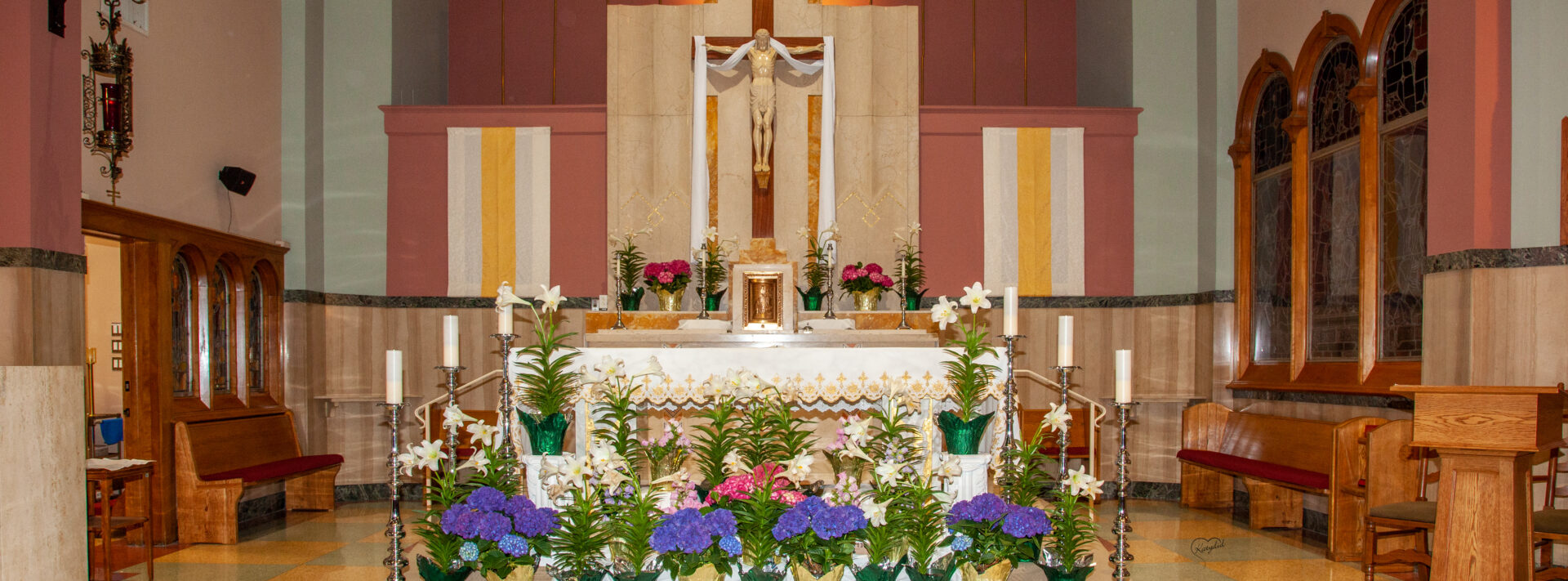We are fascinated by the dramatic falls and failings of people, especially by those who live in the public eye. God, though, is fascinated by their restoration. We tend to want people to get what they deserve. God doesn’t. We tend to shun and are repulsed not just by the sin, but by the sinner too. God never shuns and He is never repulsed. In fact, God gravitates to the sinner much like water rushes to find the lowest place on the ground. God’s mercy rushes to find the person who is in most need.
These are the lessons I believe are revealed to us in the readings today. In the first two readings, there are two people who would have been written off as ruined if they had been living today in our world, filled with a frenzy of media hype. They would have been seen as people with great potential, who had fallen from grace to a place from which they would never be able to get back up. However, they did get up. God restored them to grace and this is the great news for everyone alive today.
The two people are Moses and St. Paul. If they had been alive today, when sins are so often played out in the public eye, they would have been considered people beyond hope, beyond repair, and damaged goods. Whenever their names showed up in magazines, newspapers, on TV, or on social media, the commentary would be, “What a shame.” Or, “Can you believe it?” or, “What a tragedy.” or maybe even, “It was all just a smokescreen and they were never really people chosen by God to do His will.”
Moses was a hero for the Jewish people. He freed them and led them out of Egypt. He was loved by them. He constantly fought for the Israelites time and time again, but before all of this, Moses gravely sinned. He murdered someone and tried to hide the body, described in Exodus 2: “One day, after Moses had grown up, he went out to where his own people were and watched them at their hard labor. He saw an Egyptian beating a Hebrew, one of his own people.Glancing this way and that seeing no one, he killed the Egyptian and hid him in the sand.”
If CNN or Fox News got a hold of this, they would have written Moses off and would have told the Israelites that they were following the wrong leader, a murderer who escaped justice. God, however, didn’t punish Moses; instead, we hear that God put Moses to work to do His will.
Now, Paul was the young star amongst the Jewish Rabbis. He was taught by the greatest Rabbi of his day. He was considered to have a bright and unlimited future. His zeal was so intense that he went about persecuting the first Christians. He was responsible for arresting them, rounding them up, and sending them to jail. God radically broke into Paul’s life, called him to repentance, and commissioned him. He called Paul to be the apostle to all the non-Jewish people – the Gentiles. One of the greatest gifts that God wants to give all of us is His Mercy – a gift to the undeserving. which is giving someone something that is not deserved. God holds Paul up as the model of His mercy.
We hear about God’s mercy in the Gospel today. We may look down on the Levite and priest for passing by the half dead man on the street, but according to the law and customs of the time, it was sinful and forbidden for the Levite and priest to take care of this man. If they took care of this man, their very livelihood would have been at stake. A Jewish person could have seen and reported them. The Levite knew he shouldn’t come in contact with a dead body because he would then be considered unclean according to the law of Moses. The priest, who was holy, was “particularly told to avoid uncleanness.” Again, anything that was decaying was considered unclean, or sinful, which the half-dead man was in his eyes. It may not seem like a big deal in today’s world, but it was a huge deal then. So, this challenge of who is my neighbor has “levels” of importance beyond the Mosaic Law. Christ challenges us to think and act in a different way. He challenges us to be dispersers and disciples of mercy. Jesus wants the world to experience this: a mercy that is never selfish or self-serving, a mercy that takes real courage to give, for without cost the disciples have received and without cost they are to give.
The same mercy fueled God’s steadfast love even in the face of the Israelites’ continual sinfulness to God and the Jews’ social mistreatment of others. God’s love for his people is like a parent’s love for a child. Our Father in Heaven continually gives Israel another chance to change, something they did not deserve, something Moses and Paul did not deserve. As any parent knows, that is true mercy. For us today, there are many challenging moments in life, like getting cut off while driving, or people who gossip about us, overly criticize us, and complain about us. Maybe the moments have to do with a loved one who continually makes bad decisions in life and it breaks our hearts when they do sinful things.
There are countless things people do not deserve from us, our patience, our kindness, our understanding, our vulnerability. They do not deserve our time our talent, our forgiveness, or our love. When we choose to give these things, however, we share God’s mercy with the stranger, our family, or the “unclean” one in our lives. In that moment we take God’s saving power of mercy and place it before them. We become the Good Samaritan by bringing the experience of God’s love first hand to the person. Do people deserve this from us? Probably not, but neither do we. We don’t deserve the gift of God’s mercy given through the blood of Christ on the cross and in the saving power of the sacraments. Without cost we have received, and without cost we are to give merciful love to our neighbor.

Saint David Roman Catholic Church
It all begins with Baptism
